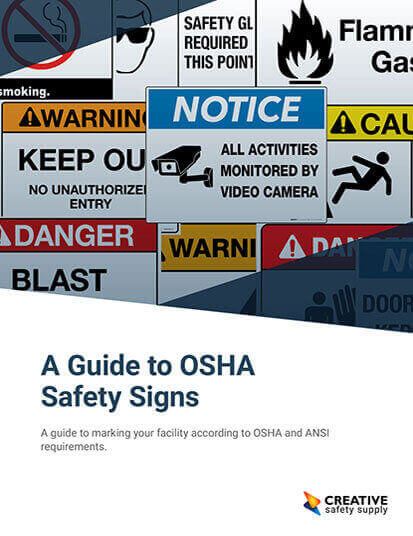
The safety and health conditions in the majority of businesses in the private sector are regulated by OSHA and the OSH Act of 1970. The act is then primarily enforced by compliance safety and health officers. These officers are trained industrial hygienist professionals who conduct OSHA inspections in businesses all across the country.
OSHA inspections are carried out through the order of priority. Workplaces with imminent danger situations, severe injuries and illnesses, worker complaints, referrals, or previous inspections are all likely candidates for a surprise inspection. For low-priority hazardous workplaces, OSHA may conduct a phone or fax investigation. Because you may never know when OSHA is going to knock on your door, it is critical to always follow regulations and keep your business in compliance with OSHA standards.
At the beginning of the inspection, the compliance officer will most likely gather PPE and testing instruments to measure any potential hazards. Throughout the inspection the officer will look for hazards that could lead to injury or illness. The injury and illness records are also reviewed, and the inspector may point out violations that can be fixed immediately.
After the closing conference, OSHA will mail the official results. These results include the violations found in the facility, the corresponding the citations, and when the violation needs to be remedied. These inspections and monetary citations make up the bulk of OSHA’s enforcement of their health and safety standards.
A good place to start is to look at the most commonly violated standards. In the 2018 fiscal year OSHA handed out the most citations for the following violations: eye and face PPE, machine guarding, fall protection, powered industrial trucks, ladders, lockout/tagout, respiratory protection, scaffolding requirements, hazard communication, and fall protection requirements.
On the flip side of enforcement, OSHA offers assistance to promote compliance. Employers can find help and resources and even schedule an on-site consultation program.
Similar Questions
- When and how often should I conduct workplace safety training?
- What are workplace safety requirements?
- What is meant by safety & health in the workplace?
- What is the role of PPE in workplace safety?
- Who regulates workplace safety?
- What are common hazards at a construction site?
- How does workplace safety effect efficiency?
- What are the Metrics that can be Used to Measure Workplace Safety?
- Why is workplace safety so important?


